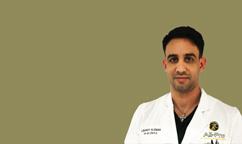Be Prepared for What Happens Next After Having Reverse Shoulder Replacement Surgery by Knowing What to Expect.
Love can be unpredictable. When you least expect it, someone will sweep you off your feet.
Or you will become drawn to a person you never thought you would be attracted to.
Its unpredictability is one of love’s most appealing aspects, but it also makes it a tad scary. Some people do not like being surprised; they want to know the consequences of their decisions.
The same goes for those who want to undergo surgery. It’s a serious procedure that can lead to complications, so it is wise for a patient to learn what they should expect. By managing expectations properly, you can prepare yourself physically and mentally for what happens afterward.
Read this article to find out what to expect after having a reverse shoulder replacement.
“Millions of patients have benefited from shoulder surgery– arthroscopic or so-called open surgery– but for certain cases, a reverse procedure may be just what the doctor ordered.”
How Does Reverse Shoulder Replacement Work?
A reverse shoulder replacement is a specialized treatment that works well for patients suffering from a badly torn rotator cuff and shoulder arthritis. It works by replacing the shoulder’s ball and socket. The joint’s ball part is on a person’s arm and fits into the shoulder.
This surgery reverses the way a person’s shoulder joint works. The ball will now be attached to the shoulder bone, while the socket will be attached to the upper arm bone. To stabilize the new joint, the patient will use their shoulder muscles instead of their rotator cuff to stabilize the new joint.
A reverse shoulder replacement is a complex surgical procedure proven to help with shoulder pain and difficulty in shoulder movement. However, despite its benefits, experts do not recommend this type of surgery to some.
What to Expect After a Reverse Shoulder Replacement?
Some people experience hesitation or fear before undergoing surgery. Although that is understandable, managing your expectations can help ease things out. Replacing parts of the join will require a challenging process of recovery, so you need to be prepared with all the information so you will know what to do.
-
Limited range of motion
You might notice that after the first few weeks of your surgery, you will not be able to lift your arm above your head. Some people, especially those who had to undergo this procedure due to degenerative conditions, may never fully regain their range of motion.
However, there is hope that it can still improve as they heal from surgery. It’s crucial to think ahead by moving essential belongings inside your home to lower shelves or surfaces where the patient can easily reach them.
Learn more here: Dislocated Shoulder Treatment 101: Things You Need To Know
-
Immobile joint
Post-surgery will make your joint immobile for a while since you must wear a sling to keep your shoulder joint stable. It would be ideal to seek the help of your family and friends in doing certain daily tasks you could no longer accomplish on your own.
Being in this condition may also affect your mental health, so it would be better for you to talk to someone or have a support group where you share the same experiences.
-
Physical therapy or rehabilitation exercises
Just because you will have a limited range of motion after the procedure doesn’t mean you will be staying in bed until the end of time. You can recover and try to regain your strength at the same time. Work with a physical therapist to identify the best action to build your strength without compromising your healing tissues.
You can start with limited range of motion exercises like stretching or pendulum exercises. Some people engage in more progressive strengthening routines around four to six weeks following surgery.
-
Medication
Your doctor might prescribe you some medication and antibiotics right before your procedure. The purpose of these prescriptions is to prevent infection and reduce pain after your shoulder surgery. Fill out these prescriptions in advance so you will not have to worry about them later while recovering.
-
Cold Compression
Other than the medications, your doctor might also recommend turning to a cold compress to help with the healing process. Therapeutic colds can initially help reduce swelling and pain, while active compression is excellent for reducing edema and removing cellular waste products from the operated shoulder joint.
-
Follow-up check-ups
You do not have to deal with your recovery alone; your family and friends will be there, as well as your doctor. Expect that you will be having follow-up check-ups as you try to recover because the doctor will have to monitor your progress through x-rays and exams.
Do You Need to Under Reverse Shoulder Replacement?
 Reverse shoulder replacement is a complicated procedure that requires precise skill and knowledge of the surgeon. You will need an expert who can correctly perform the surgery and provide adequate support to ensure your speedy recovery and progress.
Reverse shoulder replacement is a complicated procedure that requires precise skill and knowledge of the surgeon. You will need an expert who can correctly perform the surgery and provide adequate support to ensure your speedy recovery and progress.
Not many surgeons offer this service, so you need to choose one that is experienced and reputable in the field—just like All-Pro Orthopedics and Sports Medicine. They can conduct a thorough physical exam and evaluation of your medical background to help you determine if this is the best procedure for you.
Book a consultation with them by contacting (954) 322-1110. You may review their clients’ experiences here.











